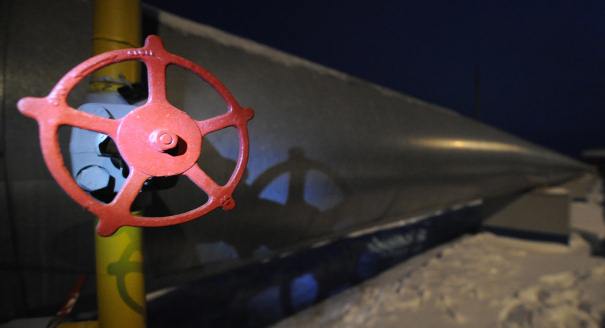At the end of the last EU–Russia Summit in Rostov-on-Don, European Council President Herman Van Rompuy uttered an ambitious statement. Announcing Europe’s readiness to be a partner in Russia’s modernization, he noted “With Russia we don’t need a reset. We want a fast-forward.”
While the two sides are sorting out a clearer road map about a partnership in modernizing Russia, a key question is what type of role energy will play in fostering this partnership. During the past few years, energy—amidst Europe’s mounting concerns about security of supply—largely played the role of a “pause” button in deepening Russian-European relations. Will it now serve as a “fast forward” button for deepening the partnership? The answer lies in addressing mutual energy security concerns as well as in expanding opportunities for joint energy sector projects involving Russian and European (along with other foreign) companies.
Signs of Optimism
An optimist would find some positive signs in three areas at least. First, energy efficiency has suddenly emerged as a big priority for the Russian government. Key legislation was recently put in place and governmental commissions have been launched to actively pursue the ambitious targets set by President Medvedev. Furthermore, energy efficiency is hardly a controversial area, and both Russia and its Western partners see mutual benefits in cooperation. For Europe in particular, a more energy efficient Russia means potentially more hydrocarbons available for its own market. For Russia, improving energy efficiency is a key for enhancing the competitiveness of its economy, and the drive itself for greater efficiency could spur innovation-based industries.
Second, it is probably fair to say that the Russian leadership already faces increasingly compelling reasons to broaden the participation of foreign companies in developing its hydrocarbons. Its largest Soviet-era gas fields are in decline and the core of its oil production, West Siberia, has started to generate fewer volumes while development costs are rising. The focus is gradually shifting towards new fields, but the cost for developing them will be staggering and the need for foreign technology and capital is getting considerably larger. Furthermore, Russia is already a high-cost hydrocarbon producer—indicating that economic risks of investment are relatively higher due to price uncertainties. As the global recession has further augmented such uncertainties, Russia could only benefit if foreign partners share such economic risks through expanding their involvement in Russia’s oil and gas sectors. As an additional benefit, if European and multinational companies acquire a more solid stake in Russian oil and gas, this could also alleviate European energy security concerns.
Finally, the gas market, which was at the center of European–Russian tensions in the past few years, looks very different now. Europe may well find itself in a relatively stronger negotiating position against is principal external gas supplier—Gazprom. Market fundamentals have suddenly shifted as a major decline in Europe’s gas demand has coincided with a substantial growth in gas traded on spot markets. As a sign of readjusting itself to this condition, Gazprom has agreed to index some of its gas deliveries to spot market prices—a major step back from its traditionally firm commitment to long-term contracts. What probably further weakens Gazprom’s hand over the next few years is that it is largely captive to the European market. A decade of negotiations with potential Asian buyers of pipeline gas is still far from reaching a conclusion. Likewise, Gazprom entered the liquefied natural gas (LNG) business only recently and its ability to compete in this segment of the gas market will remain modest at most for some time.
Forward Momentum is Not Guaranteed
Yet, an energy-driven “fast forward” in a Russian–European partnership is far from guaranteed. Take for instance, even one of the least controversial areas of this partnership—energy efficiency. Russia’s energy inefficient economy has many beneficiaries and it will probably not be easy to overcome their resistance. This could restrict the scope of joint Russian-European projects.
With regard to foreign involvement in developing Russia’s hydrocarbons, the restrictive law on foreign investments in “strategic” sectors remains as a key obstacle. There are indications that the Russian leadership has noticed the backlog of projects created by this legislation and Prime Minister Putin has hinted at the possibility for a revision. But the question is whether the Russian leadership will adopt a comprehensive approach and strengthen property rights for all investors. Traditionally, the instinct has been a preference towards ad hoc measures as they serve to enhance the power of the Russian state against non-state actors.
Meanwhile, it needs to be recognized that energy security is not a one-way street. Gazprom has hardly ever faced this level of uncertainty about its export markets and may respond by expanding its efforts to acquire European downstream assets as a means for safeguarding its market share. Such objectives will run into a wall being raised by EU’s Third Directive for the gas market – which mandates unbundling of upstream and downstream assets – and a solution is not yet on the horizon.
Finally, despite the major drop in oil prices in 2008, they are still high by historical standards. The question is: will the Russian leadership perceive these prices as “high enough” to maintain energy policies that have added to Europe’s energy security concerns in the past?





